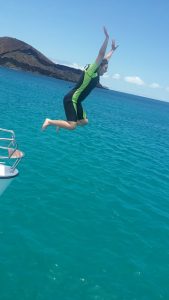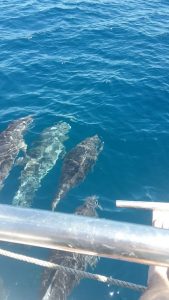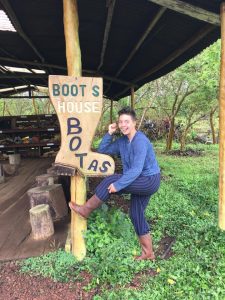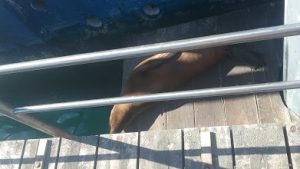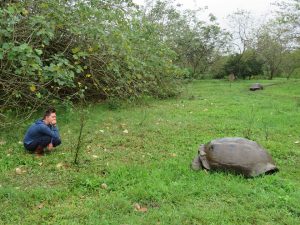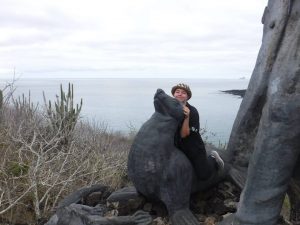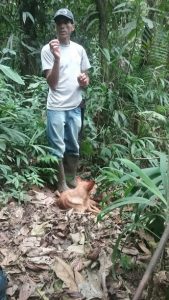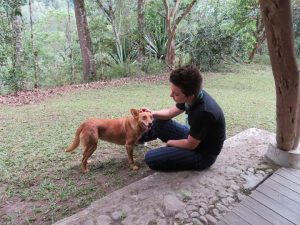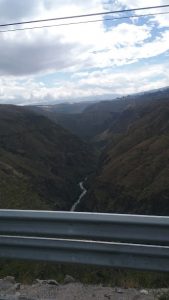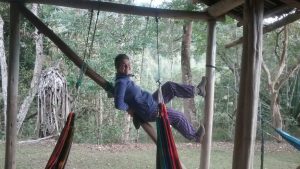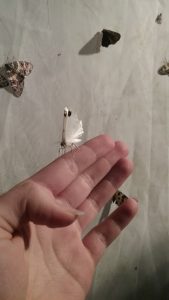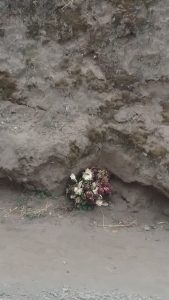(This post was written on October 18th, so forgive some mild anachronisms! I was unable to access my computer in time to get it up, and organizing my pics took some time.)
I’m leaving soon for our rural homestay in the Amazon, so I wanted to write a quick post before I left. I promise this one will be short(er than the other ones). Bullet points. Let’s go.
- We’ve been learning about Amazonian cultures and politics for about a week. I’m particularly intrigued by the politicization of traditional medicine, and gender in indigenous societies.
- We’ve also had 4 or 5 sessions on introductory Kichwa, the major language of indigenas in Ecuador! I’ve been waiting for this ALL SEMESTER. The quantity of information can be somewhat overwhelming, and I know we’re not going to come out of this block with more than a rudimentary grasp of this language… But still, it is so cool. Did you know that Kichwa has no irregular verbs? Like, seriously, all the verbs just do what they’re supposed to do. It’s amazing.
- Unfortunately I had to miss a chunk of our Kichwa classes, as the anemia+fatigue ya girl manages got bad this week. The plus side is that SIT has access to excellent medical and mental health professionals! Helena-certified.
- I also have my third appointment with SIT’s therapist when I get back from the Amazon. Her name is Marta, and she’s great. Sessions are less psychotherapy and more alternative/spiritual healing, which makes me feel like I’m partaking in a strange form of mental health tourism. But hey, if it works, it works!
- My group likes to go to a hip café near my house called Telate Café. The owner/barista has an undercut and there is always techno music playing. We try to do homework, but it never happens.
- On Friday, the owner of Telate gave me a flyer for an indie techno music festival. I’m glad that I finally look like someone who would go to an indie techno music festival.
- Last week, we got back from the Galapagos excursion. It was incredible; like being in a postcard or the tropical paradise you see on TV. After years of living on the Oregon coast, it was a bit bizarre to swim in an ocean that doesn’t immediately induce hypothermia.
- It was so beautiful. I wish I could show you.
- I had this odd sense of guilt throughout my time there. The Galapagos excursion was amazing; probably a once-in-a-lifetime experience. I SAW SHARKS. AND PENGUINS. AND REAL LIVE DOLPHINS. I got one of the worst sunburns of my life, and it was worth it.
- But I kept thinking about people who had this… Uh, nonce-in-a-lifetime experience. There are Ecuadorians who spend their entire lives in this country, but will never have the same opportunity. My parents spent their 20s working and managing mental illness and trauma; I’m spending spending mine getting academic credit for snorkeling. #FirstGenFeels, I guess.
- I’m don’t talk about this part very often because there’s nothing more annoying than someone complaining about good things that happen to them, and this program is undoubtedly one of the best experiences of my life. But I think about that juxtaposition a lot.
- The final phase of our program, the Independent Study Project (ISP) is fast approaching. I still don’t know what I’m going to do for my ISP, but I’m getting closer. Update from future Helena of October 30th, posting this: This statement is now outdated, as I have decided on my project. Stay tuned. 😉
